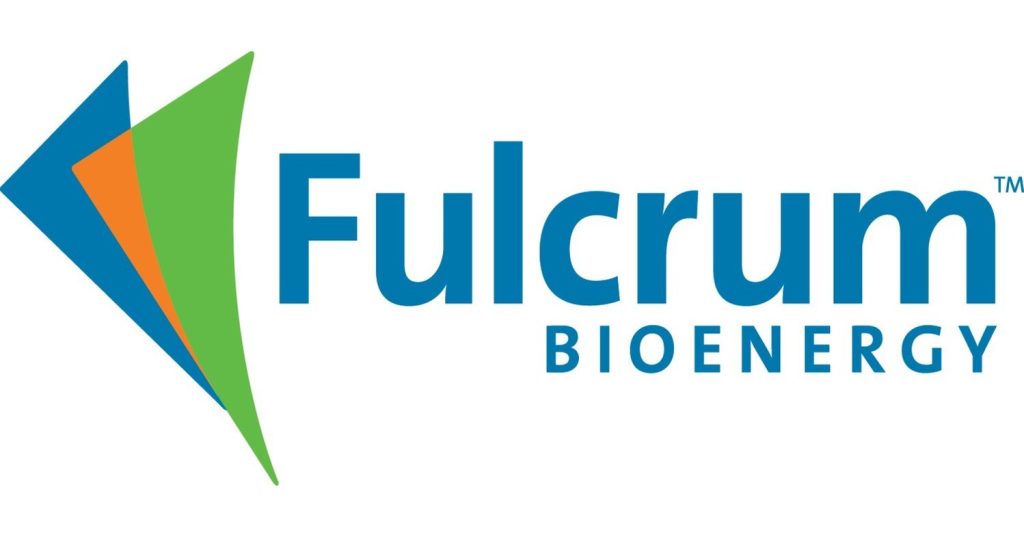
Fulcrum BioEnergy’s Sierra plant sees first biofuel from landfill waste
December 21, 2022
By Fulcrum BioEnergy
Landmark achievement expected to spur global development of waste-to-fuels plants aimed at producing 400 million gallons of SAF annually to help decarbonize aviation industry.
 Fulcrum BioEnergy, Inc. logo
Fulcrum BioEnergy, Inc. logo Fulcrum BioEnergy, Inc., a clean energy company pioneering the creation of renewable, drop-in transportation fuels from landfill waste, today announced that it has successfully produced a low-carbon synthetic crude oil using landfill waste as a feedstock at its Sierra BioFuels Plant, the world’s first commercial-scale landfill waste-to-fuels plant. This significant achievement positions Fulcrum as a renewable fuels leader producing and selling net-zero carbon fuel and addresses climate change by supporting the aviation industry’s goals to reduce lifecycle greenhouse gas emissions.
“This accomplishment is a watershed moment for Fulcrum and opens the door for our plans to transform landfill waste around the world into a low-carbon transportation fuel in a way that will have a profound environmental impact,” said Eric Pryor, Fulcrum’s president and chief executive officer. “After more than a decade of dedication and perseverance, successfully creating a low-carbon fuel entirely from landfill waste validates the strength of our process and our partners’ unwavering belief in and support for our business model. As we continue to work to address global environmental challenges and advance our development program, we aim to replicate our success at Sierra with cost-efficient net-zero carbon plants nationally and ultimately around the globe.”
An accomplishment for the broader industry and world
This milestone comes as the world has convened on emissions reductions goals, the Biden Administration has prioritized the development of lower-carbon transportation methods and the aviation industry has set its sights on net-zero carbon emissions by 2050. Fulcrum is committed to supporting these objectives and has entered into strategic partnerships with major airlines and other offtake partners to purchase its renewable fuel. By producing a synthetic crude oil product, which can then be further refined into sustainable aviation fuel (SAF), Fulcrum has demonstrated its process and is preparing to supply its strategic partners with SAF that it expects will be net-zero carbon when compared on a lifecycle basis to traditional petroleum-based jet fuel.
“This is a significant accomplishment for Fulcrum and the aviation industry,” said United Airlines Ventures managing director Andrew Chang. “United has led with bold action to fight climate change, including committing to net-zero carbon emissions by 2050 without relying on traditional carbon offsets, and investing in more sustainable fuel production than any other airline globally. We look forward to advancing our collaboration with Fulcrum to increase the supply of sustainable aviation fuel.”
With the recent passage of the Inflation Reduction Act (IRA), the U.S. government has made clear its newfound support for the domestic growth of SAF as a clean alternative to standard fuel. “We applaud the passage of the IRA, which will foster industry growth and innovation to supply SAF. We’re thrilled to contribute to the White House’s Grand Challenge of producing at least three billion gallons of SAF by 2030,” added Pryor.
Fulcrum’s cutting-edge, unique process and unparalleled facilities
Fulcrum has spent more than a decade and significant capital developing an innovative process for transforming a true waste product into a valuable low-carbon transportation fuel for the aviation industry. Fulcrum expects to utilize a standardized, scalable, low-cost approach for larger future projects replicating the successful process at Sierra, which is backed by patents and capitalizes on the intellectual property developed by the company in its engineering and start-up operations of this first-of-its-kind plant.
“Fulcrum has successfully demonstrated a groundbreaking technological achievement that will have far-reaching implications for clean energy around the globe. We are proud to not only be an investor but also a strategic partner as we explore bringing Fulcrum’s patented and proprietary waste-to-fuel process to the APAC region together,” said Dongsoo Kang, head of SK Innovation’s portfolio division.
“This is a tremendous and exciting accomplishment for Fulcrum and is also very important for Cathay to reach its commitment for using 10 per cent sustainable aviation fuel by 2030. As Fulcrum’s first airline investor and fuel offtake partner, we look forward to using SAF produced by Fulcrum very soon. We are confident that this milestone will help open up more SAF production capacity in Asia and around the world,” said Grace Cheung, group head of sustainability and corporate responsibility at Cathay Pacific Airways.
The company has identified and is making progress on its planned growth program, which Fulcrum expects will have the capacity to produce approximately 400 million gallons of net-zero carbon transportation fuel annually. The Company’s development program includes the Centerpoint BioFuels Plant in Gary, Indiana, the Trinity Fuels Plant in the Texas Gulf Coast region and the NorthPoint project in the United Kingdom.
Print this page